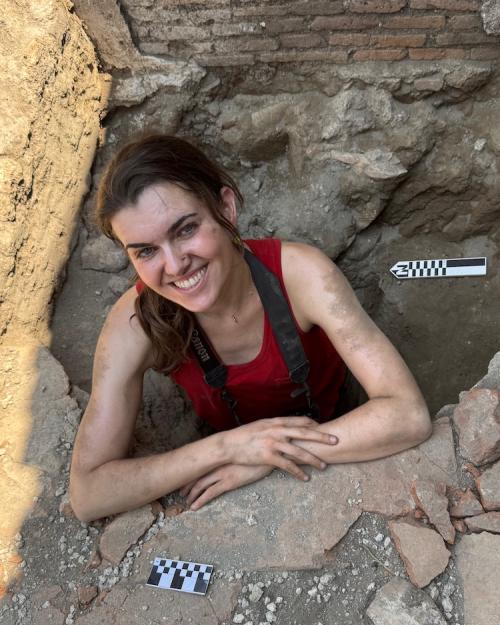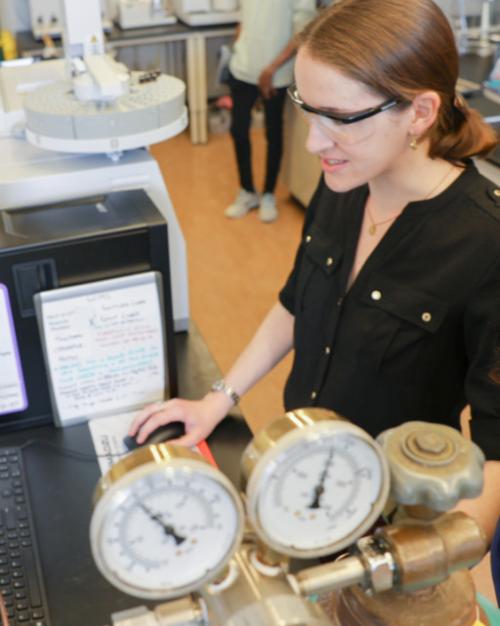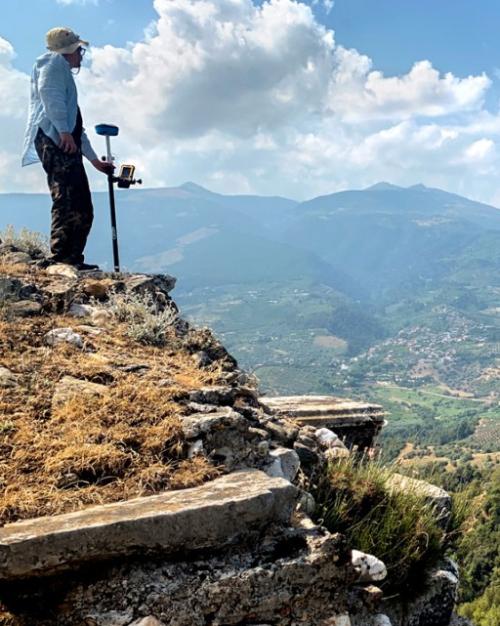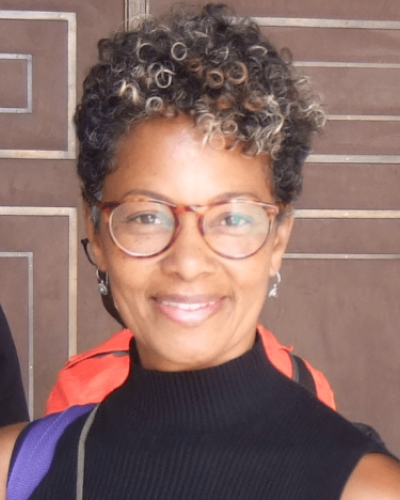Cornell Classics welcomed Dr. Solange Ashby to Ithaca on Friday, November 12. A specialist in ancient Egyptian language and religion and currently a President’s Postdoctoral Fellow at UCLA, Ashby joined us to discuss her 2020 monograph, Calling Out to Isis: the Enduring Nubian Presence at Philae.
Developed from Ashby’s PhD dissertation at the University of Chicago, Calling Out to Isis deftly analyzes a corpus of Demotic and Meroitic inscriptions from the Isis sanctuary at Philae, a Nilotic island located at the border between Egypt and Nubia. In addition to identifying several phases of Nubian religious activity in this region from the late 1st-century BCE to the mid-5th century CE, Ashby argues that these inscriptions at Philae assert the deep devotion that Nubians held for the goddess Isis and provide insight into Nubian cultural values such as the importance of kinship groups and matriarchal connections. She notes that the common exclusion of Nubians from discussions of Isis worship continues to be a core motivating factor for her research, and she describes the relationship between herself, as translator, and the authors of these inscriptions as one of “sacred trust.”
Ashby asserts the pressing relevance of her research, especially for African American communities. She says, “I think it’s important for [them] to know this history as a pushback against the really dominant, if somewhat more implicit, understanding that nothing important happened on the continent of Africa… The South is where Egypt always originates, and the impetus for civilization comes again and again from the South. I think that’s empowering for African people on the Continent and in the Diaspora to hear and understand and really incorporate into our beings. We have a history, it’s ancient, it’s noble, and it deserves to be told.”
In this vein, Ashby and seventeen other scholars specializing in the ancient Nile Valley region founded the William Leo Hansberry Society in 2020 as “an organization of Black scholars from Africa and the African Diaspora committed to promoting and diversifying the study, research, and scholarship of the ancient African past.” By their efforts, they “seek to bridge the obstacles that prevent Black people from acquiring the education and technical skills necessary to engage in this work.”
Ashby continues to highlight the vibrant ancient history of Africa in her current book project, which focuses on the special status enjoyed by Nubian women. She says, “The role of a woman in Nubian society is so much better than anything that we have experienced… she is powerful, she can rule on her own, she can be a priestess, her body and female sexuality are sacred, motherhood is revered… to me, all of that is revolutionary in the context we find ourselves in… I want to shine a light on a culture that does celebrate, acknowledge, and openly revere the feminine in whatever aspect – as a queen or as a regular, nomadic woman tending her cattle.”
Noting the power of these perspectives for people in the general public and her desire to produce more public-facing scholarship, she laughs, “I don’t want [that knowledge] to sit on dusty stacks somewhere in a book that costs $95.”
Ashby herself was a member of the general public for much of her early life. She says, “I entered graduate school at the age of 38; I was 12 weeks pregnant with my oldest child. I was inspired to attend graduate school after meeting a 65-year-old woman who had recently been awarded her doctorate in Anthropology. She was so incredibly inspiring to me, and I thought, ‘It's not too late.’ Being an older student and a mom has had its share of challenges (and benefits!). I want other potential students to know a doctorate can be done at any age.”
She notes further that “age, ethnicity, life experience, social class, and gender all inform how we do scholarship and enrich it.” A powerful message and reminder for us all.
Sophia Taborski, a graduate student in the Classics department, organized Ashby’s visit. When introducing Ashby at the book talk, Taborski emphasized her great admiration of Ashby’s work and stated that she had read Calling Out to Isis in a single sitting. She was grateful for the opportunity to invite Ashby to Cornell, saying “[her visit] was definitely the highlight of my semester.”
The event on November 12th was designed to give graduate students and faculty the opportunity to respond to Ashby’s work after she presented it. Dr. Caitlín Barrett, an Associate Professor of Classics and a specialist on interactions between Egypt and the Graeco-Roman world, served as a respondent. She says, “Solange Ashby is one of the leading scholars of Nubian/Egyptian interactions in the Meroitic period and a transformative new voice within the fields of both Nubian studies and Egyptology.” Further, her response made the positive stakes of Ashby’s work clear: “This book makes a much-needed intervention in centering Nubian people, and Nubian evidence, in multiple important scholarly conversations – concerning, among other subjects, the internationalization of Isis worship, the rise of Christianity, and interactions at the frontiers of ancient empires. Dr. Ashby’s work demonstrates both the crucial role that ancient Nubian studies have to play within interdisciplinary debates, and the need for Egyptologists, Classicists, and scholars of early Christianity to look southward.”
In addition to presenting her research, Ashby commented on the process of turning her dissertation into a book, noting both successes and difficulties. As a first-generation scholar, she addressed the arcane conventions that surround the academic publishing process and emphasized the need for strong self-advocacy.
Beyond Calling Out to Isis, Ashby has written articles for Dotawo: A Journal of Nubian Studies and Near Eastern Archaeology. Barrett has assigned Ashby’s articles in two of her courses as part of a goal to “introduce students to the geographic, cultural, and ethnic diversity of what we call the ‘Classical’ world, including Greek and Roman interactions with neighboring societies such as the Meroitic empire.” Her initiative highlights how faculty can continually improve course curricula by actively incorporating valuable new perspectives and research like Ashby’s.
We thank Dr. Solange Ashby for sharing her expertise and encouragement with us during her visit to Cornell, and we look forward to seeing where her research takes her next.





